A real estate boom transforms a community with a polygamist past
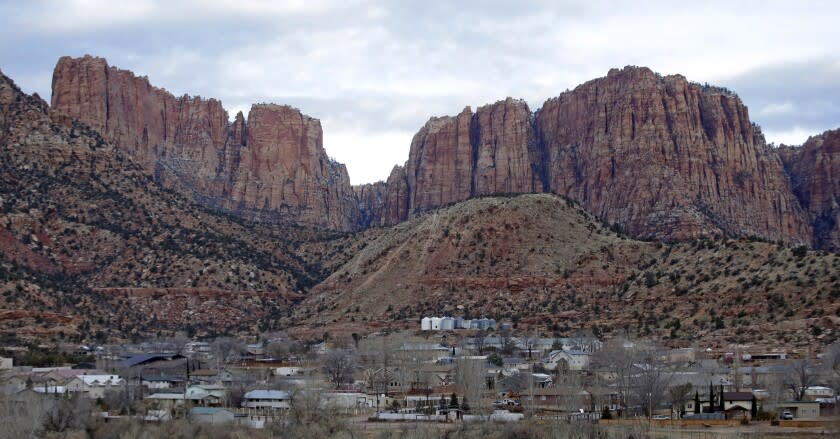
In 2018, Shane Tooke decided his city was getting crowded and began looking for a place in the country.
He soon discovered there were real estate deals to be had in Hildale, just 40 miles from St. George, where he lived and owned a chain of hair salons. He bought an acre lot and built a 1,500-square-foot ranch house with stunning views of the surrounding red rock cliffs and mountains.
He didn’t stop there. He figured that with its proximity to Zion National Park, Lake Powell and the Grand Canyon, Hildale could be a magnet for tourists. In 2020, he opened the Water Canyon Resort, a collection of 20 sleek rental cabins. Then he bought a vineyard and turned it into a winery scheduled to open this month.
As for the town's past, he didn’t dwell on it.
“I’ve never been put off by the history,” said Tooke, 45. “I don’t come from the past.”
Not so long ago, the town was part of an austere theocracy that practiced polygamy, shunned the outside world and required absolute obedience from its followers. Hildale and neighboring Colorado City — just across the border in Arizona — made up the community of Short Creek, the headquarters of one of America's most extreme religious sects, the Fundamentalist Church of Jesus Christ of Latter-Day Saints, or FLDS.
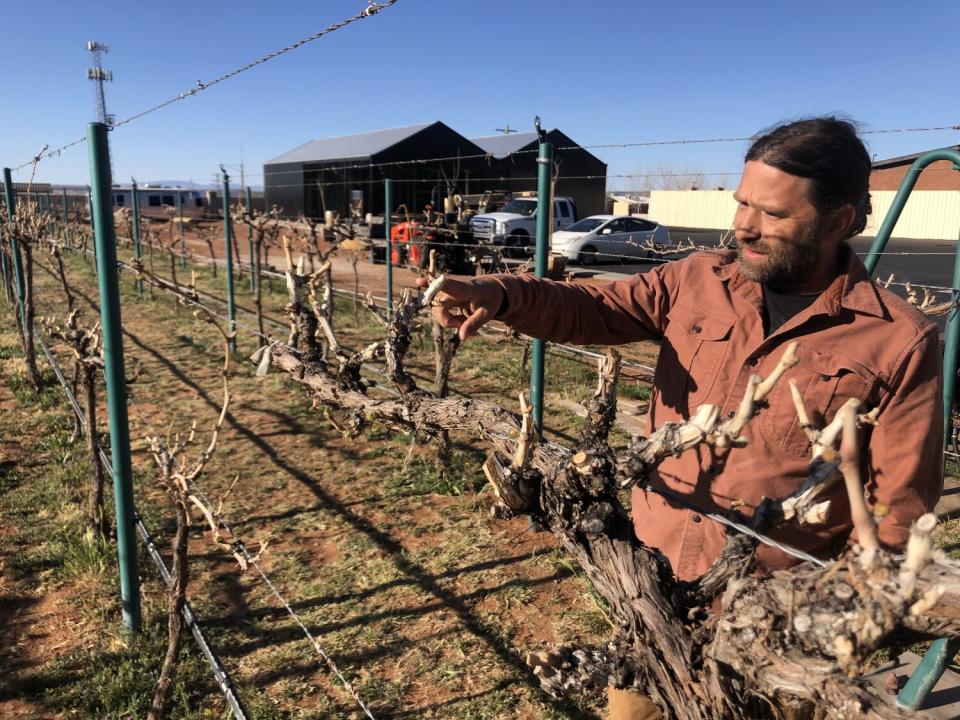
Roughly 9,000 people lived in Short Creek, and nearly all belonged to the church, which owned their houses, controlled the police force and set the rules with little interference from secular authorities. It all began to crumble about 15 years ago after the arrest and prosecution of its notorious prophet, Warren Jeffs, who had taken extremism to new levels.
The state of Utah seized the trust that held the church’s real estate assets and began selling them off, making land and home ownership available to everyone for the first time.
Tooke is among the thousands of people — outsiders and former church members alike — who have recolonized the community.
With the FLDS on the brink of extinction, Short Creek is now a place to score fresh sushi, a good amber ale and maybe a room for the night in a comfy resort. There is a spacious new grocery store, a library, coffee shops and new schools. Women hold political office.
“I think the winery will be a unique attraction for Hildale,” Tooke said, checking on a few of his 900 vines. “It’s like Napa but on a smaller scale.”
The traditional Church of Jesus Christ of Latter-day Saints banned polygamy in 1890. Four decades later, Mormons excommunicated for refusing to give it up found a haven in Short Creek.
Utah and Arizona banned polygamy, but as long as the fundamentalists kept to themselves, the law was rarely enforced.
The FLDS prophet arranged marriages and decided how many wives a man could have. Three was the minimum required to reach the highest heaven.
As out-of-step as that may seem today, Shirlee Draper, 51, has fond memories of growing up in Short Creek with two mothers and 10 siblings.
There was no television. Everyone went to the same church, believed the same thing, and knew everyone else. She felt secure and loved.
“They say it takes a village, and we were a village,” she said. “So that sense of safety, that sense of belonging was foundational for good mental health, and I took it for granted.”
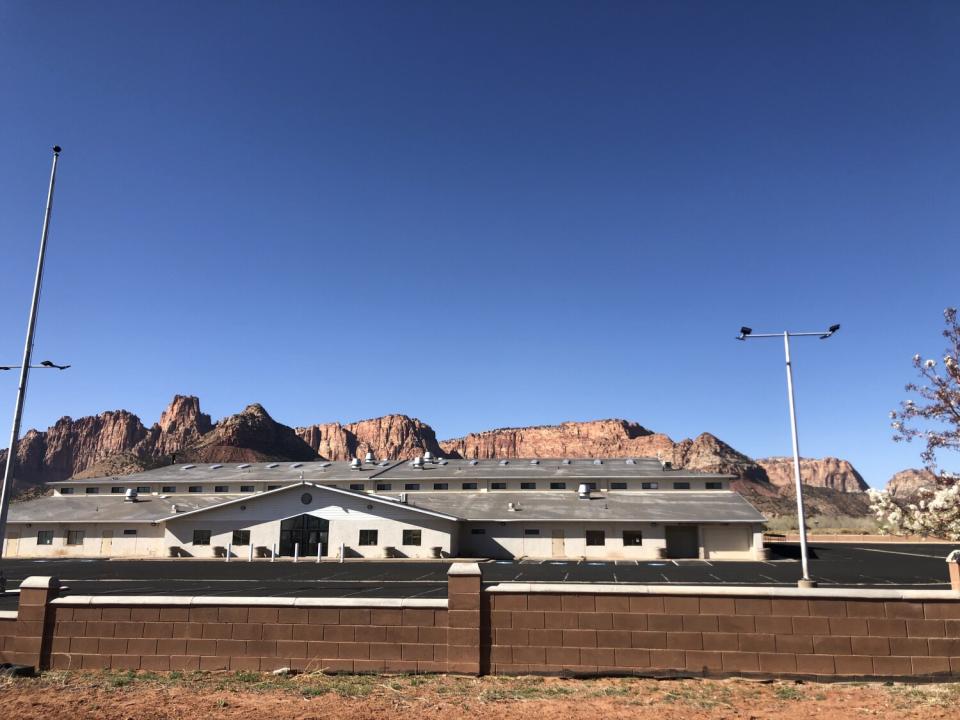
All that changed in 2002, when Jeffs took over as prophet after his father died.
Erratic and paranoid, he ordered all FLDS children out of the local public schools and banned holidays, parades, games, toys and — for reasons that remain unclear — the color red. His “keep sweet” mantra was a thinly disguised demand for total compliance. Not long into his tenure, he banished 20 of his subordinates and reassigned their wives and children to other men.
As church members began to quit, Draper and her four children left town in 2004.
She said leaving Short Creek was like “peeling off my own skin.” St. George, where she ended up, might as well have been a different country.
“There were language barriers. Our customs were different,” she said. “We didn’t celebrate holidays celebrated in the outside world. We didn’t have the pop cultural references.”
But as the ranks of ex-FLDS grew, stories of the abuse they suffered began to emerge. That led to a series of investigations against the church and Jeffs that resulted in his 2011 conviction of sexual assault on two child brides — ages 12 and 15 — and sent him to prison for life.
By then, the state of Utah had seized control of the United Effort Plan, the church trust created in 1942 that owned nearly every house and business in town.
In 2015, the state turned over management of the trust to a local board made up almost entirely of former FLDS members. Draper, who works for Cherish Families, a nonprofit that helps people from polygamous backgrounds in need, is the board president.
People living in the homes who paid the taxes, signed occupancy agreements and paid a $100 monthly fee could stay in them.
Many FLDS members refused, believing their houses were consecrated to the church, and were evicted. Their homes were sold off. They scattered to at least 18 other states, Canada and Mexico searching for another Zion as their own began to slip away
A real estate boom is transforming Short Creek as outsiders and former FLDS members take over.
The block-long FLDS meeting house is being turned into a community center. Walls once surrounding massive homes brimming with wives and kids are being torn down, some of the houses split into individual apartments.
The trust sold Jeffs’ 28,000-square-foot, 44-room mansion to Briell Decker, his 65th wife. When the upkeep proved too expensive, she donated it to a chain of a sober living facilities.
“The first thing a Christian will say is take what the devil would use for evil and use it for good,” said Decker, who left the FLDS and works as an aide at the house, called the Short Creek Dream Center.
The words "PRAY AND OBEY" still run the length of the chimney outside.
“This was my room,” Decker said. “Warren Jeffs was next door.”
She married Jeffs when she was 18, shortly after he took over as the prophet. “We never consummated the marriage because I always found ways to avoid him, “ she said.
She descended the stairs, opened a door to an ordinary room and pulled a hidden latch under a shelf. It opened to a chamber she said was likely a hiding place for Jeffs.
Even in the worst of times, including when she left Short Creek for other church enclaves, Decker felt drawn back. Now 36 and married with no children, she lives in Colorado City.
Many of her neighbors are people who grew up there, left and returned — like Darlene Stubbs.
She was 15 and wanted a life that didn’t involve polygamy. She landed in St. George, where she lied about her age to get a job at a fast-food restaurant and eventually earned a GED and an associate’s degree in science and got married.
In her mind, Short Creek was “desolate and abandoned,” and some people "weren’t very nice.”
But she and her husband, also former FLDS, started hearing that things had changed and bought a house from the trust.
“I had been gone for 15 years,” she said. “I told myself I would never move back. But I decided to give it a try.”
Stubbs returned and found a different community.
“This place stole my heart,” she said. “I felt like I had misjudged it and realized that I wasn’t angry at the town but at a person — Warren Jeffs.”
Now 33, Stubbs works at a local nonprofit. She has also organized a running club, a farmer’s market and a hot air balloon festival and is director of the Fourth of July parade.
Her parents are still in the FLDS, but she gets along with them. Stubbs has two adopted children.
“Out of my mom’s 12 kids, only one is still a member of the church. That’s very common. There is no religion to follow anymore,” she said. “My church is a good Jeep ride down the creek.”
Perhaps no story illustrates the changes sweeping Short Creek more dramatically than that of Donia Jessop.
She grew up here and at 17 ran afoul of then-prophet Rulon Jeffs — Warren’s father — in the late 1980s by marrying the man she loved rather than one chosen for her.
“We were severely shunned. People would walk past and give us the evil eye, turn their face against us,” she said. “When Warren took over, he told my husband he would never get more wives.”
In 2012, FLDS leaders excommunicated her, her husband and all but one of their 10 children — their 9-year-old daughter who he wanted to "assign" to another family. The whole family, daughter included, resettled just outside St. George, where Jessop got a job at a nonprofit.
Four years later, with change afoot, her husband began thinking of going back to Short Creek.
“I told him, `Over my dead body,’ so he asked me to make a list of pros and cons,” she said. “The top of my list was pride. But eventually the pros outweighed the cons.”
Jessop returned and began working with the Short Creek Community Alliance, which advocates for voter registration, political engagement and the interests of non-church members.
She ran for mayor of Hildale in 2017 against the FLDS incumbent on a platform of transparency, fiscal responsibility and building community. To the surprise of many, she became the first woman and non-FLDS member to hold the office.
But she quickly discovered that Short Creek hadn’t changed as much as she thought.
“I came to work, and the door was locked. I knocked on the door,” she said. “They opened it a crack and asked, `What do you want?’ I said, `I’m the mayor, and I want to go to work.’ I told them that change had just walked through the Hildale City Hall door. Everyone left, and it was just me.”
Jessop, 52, replaced the staff. She put in sidewalks and enacted zoning laws in a place where people tended to build wherever they wanted. Hildale adopted the slogan "Welcome Home."
Property values soared as more outsiders moved in. Jessop won reelection last November and was sworn in by Lt. Gov. Deidre Henderson, who hailed the changes sweeping Short Creek and called her a role model.
Jessop’s counterpart in Colorado City is an FLDS member. With four town council seats up for grabs this fall, the political landscape could change there as well.
“We have to design our future, decide what it will look like and work for it," she said. "We can’t be little Stepford Wives. We have to think for ourselves.
“It will take a generation to make the full changes we need. My grandchildren will live in a different community than I did.”
It’s unclear to authorities who runs the FLDS now.
After the fall of Warren Jeffs, his brother Lyle Jeffs took over. Lyle Jeffs was arrested in 2016 for orchestrating a multimillion-dollar welfare fraud scheme and sentenced to five years in prison.
Also gone is the old police force, which patrolled both towns and was entirely FLDS. In 2017, a federal judge ruled that the force discriminated against non-members and ordered retraining, the hiring of new officers and a monitor to oversee it all.
A new leader, Chief Marshal Robb Radley, who grew up near Salt Lake City with no connection to the church, recruited officers from outside the community. Several are women.
“We are fair and unbiased,” Radley said. “We don’t care what name you have, everyone will be treated equally.”
The population of Short Creek today is down to about 4,000 — about half its peak — and only a few hundred FLDS members remain.
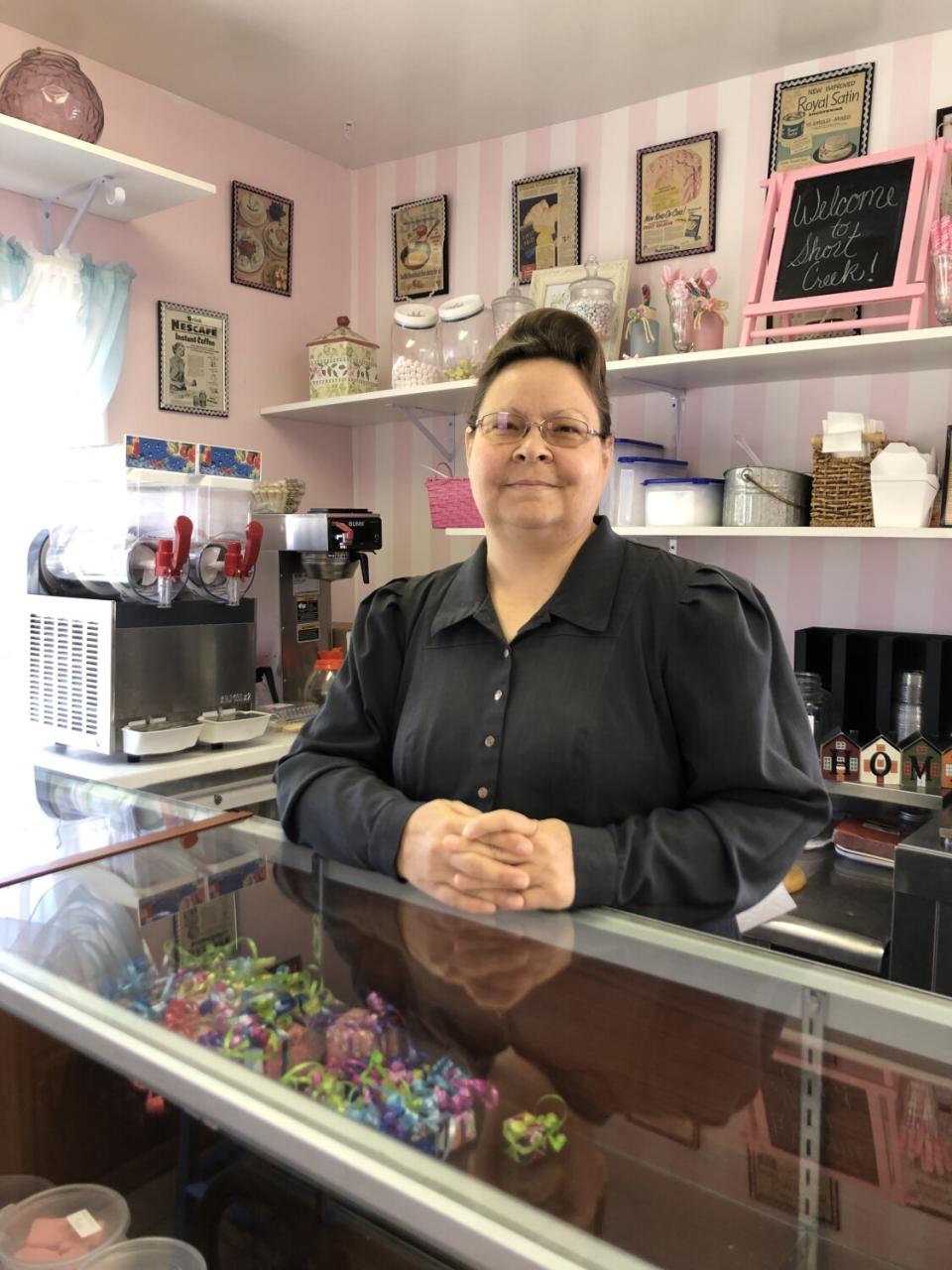
“If it gets to the point where I don’t have anyone here, then I will have to go somewhere else,” said one, Esther Bistline, 45. “We have really lost our support system. We don’t even have a place to worship. My whole family has had to move away.”
She sells snacks and handmade clothing from Short Creek Cottage, a shop created by a nonprofit that advocates for marginalized groups including the FLDS.
“So many of our families have been driven away from the community. They have taken our storehouse, our religious buildings,” she said. “We have no bishops. If I had a religious issue, I guess I’d talk to my dad.”
Norma Richter, 55, stopped by to pick up some dolls she hoped to sell online. Her 12-year-old daughter Lydia who, like many FLDS children, is homeschooled, joined her.

Richter, who has 13 kids and is one of five wives, said the sight of the brewery or the vacant old meeting house “feels like a knife in the gut.”
“Culturally, we have been destroyed,” she said.
Lydia, who wants to be a veterinarian, combed her mother’s hair.
“I just wished there were more of our people still here,” she said.
Two other FLDS members — sisters in their 30s who spoke on the condition that their names not be published — said their lives have been on hold since Jeffs went to prison.
Both expressed a longing to be married and have children but said that was impossible without his blessing.
“We will wait. We believe he will get out of jail,” the older sister said. “Miracles happened in the past. Why can’t they happen now?”
Both women were dressed like their pioneer ancestors in long prairie dresses with their hair swooped up front and pulled into a bun in back.
Their loyalty to Jeffs is more remarkable given that he banished their own father 17 years ago for reasons they still don’t know.
“It’s between them and Heavenly Father,” the older sister said. “Uncle Warren holds the key.”
She called the removal or changes to FLDS buildings and landmarks a desecration of their faith.
“They bring in a grocery store, and all of the suddenly it’s Vegas in the creek!”
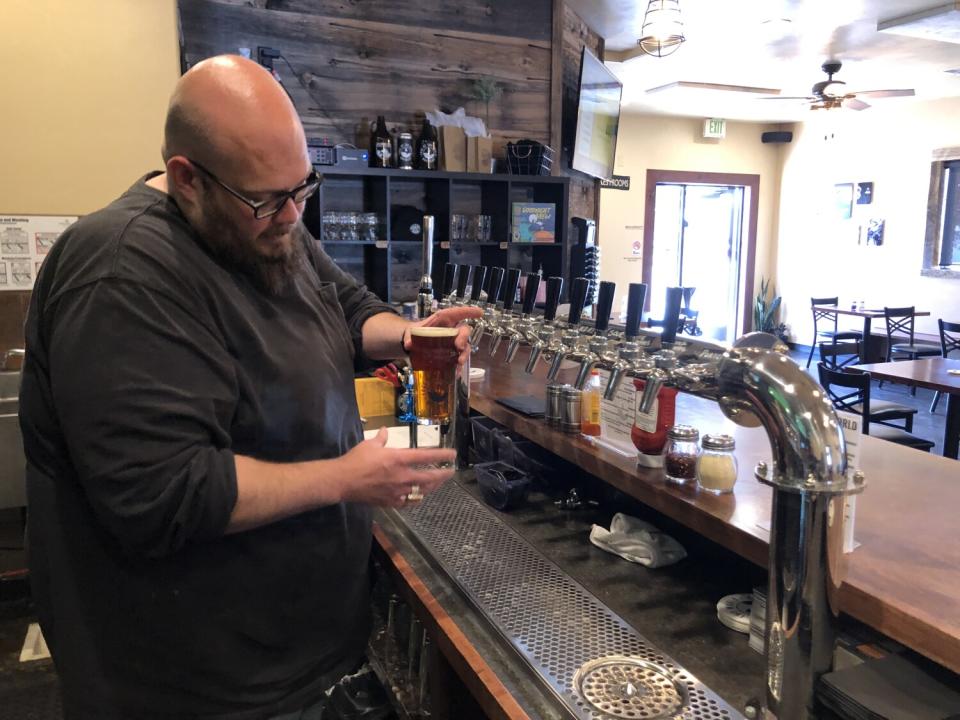
A few blocks away, 32-year-old Raymond Hammon checked the 12 taps at his brewery.
“I grew up outside of the faith,” said Hammond, who is from Cane Beds, a rural Arizona community just south of Colorado City. “When I was a kid the FLDS wouldn’t talk to us.”
Four years ago he left substitute teaching and guitar instruction behind to open the Edge of the World Brewery with three partners. A home brewer for years, he felt it was time for a local watering hole.
“There was no competition because there was no place to drink,” he said. “The closest place to go for a drink was St. George.”
On a recent evening, the back patio bustled with patrons enjoying sweeping views of the ragged cliffs and rust-colored mountains.
Hammon said about 60% of his customers are tourists visiting nearby sites like Zion National Park.
“People will sometimes tell me that the town seems a little different,” he said. “I ask, 'Do you know the history?’ and they say 'No’ and I say, 'Well, Google it and come back and talk to me later.'”
Hammon poured a beer.
“Some of them actually do.”
Kelly is a special correspondent.
This story originally appeared in Los Angeles Times.

